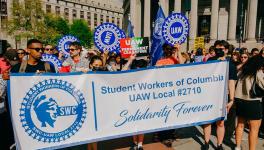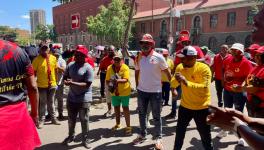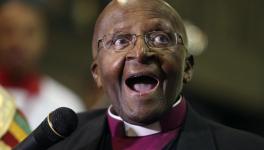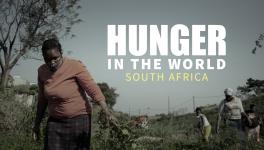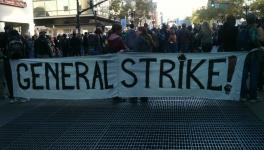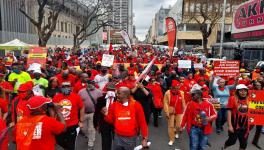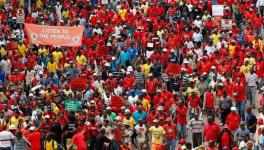Unions Threaten Aviation Strike if South African Airlines CEO is Not Reinstated
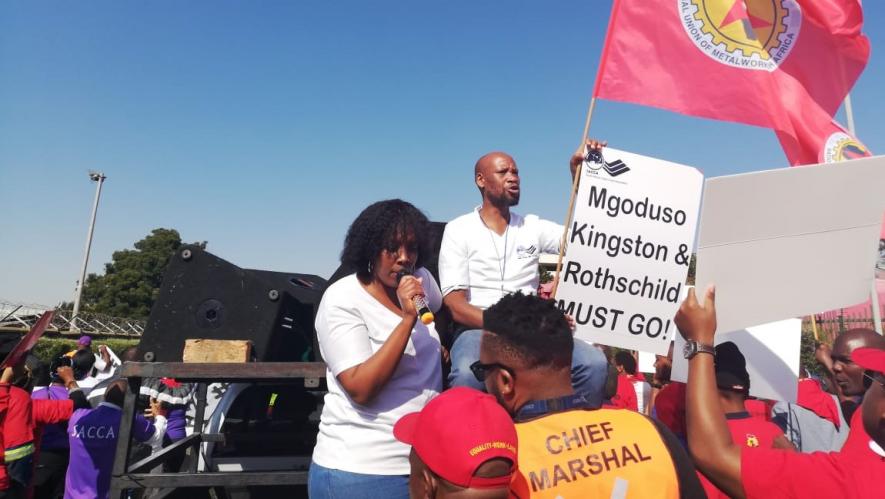
Members of the South African Cabin Crew Association and National Metal Workers of South Africa said there was a concerted effort being made to privatize the carrier.
Unions have given the management of South African Airlines (SAA) 48 hours to reinstate its CEO, Vuyani Jarana, who resigned on June 2. In his resignation letter, Jarana had said the government and shareholders did not cooperate in implementing the Long Term Turnaround Strategy (LTTS) to address the financial woes of the state-owned carrier.
Unions also gave a seven-day deadline for the resignation of four members of the board – including the former CEO of Rothschilds and Co, Martin Kingston, Thandeka Mgoduso, Peter Tshisevhe and Geoff Rothschild (not related to the Rothschilds banking family).
All the four members have been identified by the two unions, South African Cabin Crew Association (SACCA) and National Metal Workers of South Africa (NUMSA), as having an interest in privatizing the airlines, which will eventually happen if the financial difficulties of SAA are not addressed.
These members, the unions alleged, allowed corruption under their tenure which damaged the financial health of the airline, and subsequently obstructed the implementation of the LTTS, which would have made the ailing airlines financially self-sustainable by 2021.
“Should our demands not be met, we will mobilise our members across SAA and other airlines where we are organised, including SAA subsidiaries (Air Chefs, Mango, SAA Technical) and suppliers within the value chain, and embark on a strike which will shut down aviation as a whole,” read a memorandum which was handed over by the unions to the SAA management yesterday.
This memorandum was handed over after aviation sector workers represented by these unions picketed outside all the major airports in South Africa for two-and-a-half hours on June 11, sloganeering and holding up placards which exclaimed: “SAA is not for sale”, “SAA board must go” and “Bring back our CEO”.
“This is not to say that Jarana is a shop steward for workers or a union representative”, a joint statement previously issued by SACCA and NUMSA had clarified. “[B]ut in our experience of engaging with him, he demonstrated respect for workers and the unions which represent them.”
The SAA is unprofitable and indebted today, but not due to some inherent flaw in the model of State Owned Enterprises (SOEs), as claimed by the numerous editorials advocating privatization. Instead, conscious decisions made during the tenure of these board members to benefit certain private interests at the cost of SAA led to the financially destabilization of the company.
Speaking to People’s Dispatch, NUMSA’s spokesperson Phakamile Hlubi-Majola explained the series of irregularities that led to the SAA ending up in this situation were highlighted in forensic reports of Ernst and Young and the Open Water Report. One of these was the sale of Ground Power Units (GPU) – which are used to power the operations of the aircraft on ground, during the periods in between flights.
In 2016, SAA Technical (SAAT) sold all the 12 GPUs it had to a private company called JM Aviation at below the market price, leading to a loss of more than R5 million.
These 12 GPUs had been bought by SAAT only one year before at the cost of R800,000 each. They were then sold at the cost of R240,000 per unit, when the market price was at least R750,000, NUMSA said in a statement in 2017, based on the findings of the report. “The purchase of these GPUs”, the statement said, “was irregular in that the person responsible for the SAAT asset register had not approved the disposal of all the GPUs.”
“Once JM Aviation had bought them, they went on to sell the very same GPUs to Swissport. SAAT now leases the very same GPUs from Swissport at a rate of R550 per hour‚ demonstrating that the transaction was purely motivated by greed and corruption,” it added.
This sale was one of the many irregularities identified in the report. When NUMSA marched against this corruption in October 2017, the company went to the labour court seeking to interdict the protest action.
However, the court instead ordered SAAT to suspend all senior officials who had ben implicated of corruption in the report, and to implement the recommendations made in it.
Warning that the company would be in contempt of court should it fail to comply, NUMSA threatened to go on a protected strike. It was around this time that Jarana was appointed as the CEO, and tasked with restoring the financial stability of the airline.
Soon after taking charge, Jarana won the confidence of the unions by working closely with them and setting out to implement the recommendations. The process of implementation “was gaining momentum” under Jarana, the memorandum notes.
2021 turnaround plan was sabotaged: unions
Jarana had also given an assurance that SAA would not be privatized, and had proposed a plan to make the airline financially self-sustainable by 2021. This plan, which was approved by the government, would have “required funding of R21.7 billion, R9,9 billion of which was old debt and R12.5 billion of which was working capital requirements till 2021,” Jarana noted in his resignation letter.
However, only R5 billion was provided for the 2018/2019 financial year, a large portion of which was “used to fund creditors up to the end of March 2018. We have not been able to obtain any further funding commitment from government, making it very difficult to focus on the execution of the strategy. I spend most of my time dealing with liquidity and solvency issues,” he lamented.
Seeking to find the capital required for debt refinancing from other sources, Jarana then led SAA into an agreement with Deutsche Bank, after having obtained approval from the government “for lifting of the foreign borrowing limits”. However the government then revoked the approval, following which the agreement with the bank had to be cancelled.
Jarana had also sought from the government a letter “indicating its intention to approach parliament to appropriate funds to support SAA working capital requirement” till 2021, as was agreed upon. Using this letter as an assurance, he had intended to raise capital from domestic lenders. This letter was also “not.. forthcoming, at least not in the.. form we believe would satisfy the lenders.”
The emergency funds of R3.5 billion which he had managed to raise from domestic lenders has allowed the airline to operate from December last year till date. However, these funds “will be depleted in June 2019”, he warned.
Should the airline be thus allowed to fail, it can then be privatized. And Hlubi-Majola has no doubt that should it happen, the greatest beneficiary will be an associate of the Rothschild family, which, she said, has an enormous influence on the ruling ANC.
Get the latest reports & analysis with people's perspective on Protests, movements & deep analytical videos, discussions of the current affairs in your Telegram app. Subscribe to NewsClick's Telegram channel & get Real-Time updates on stories, as they get published on our website.










